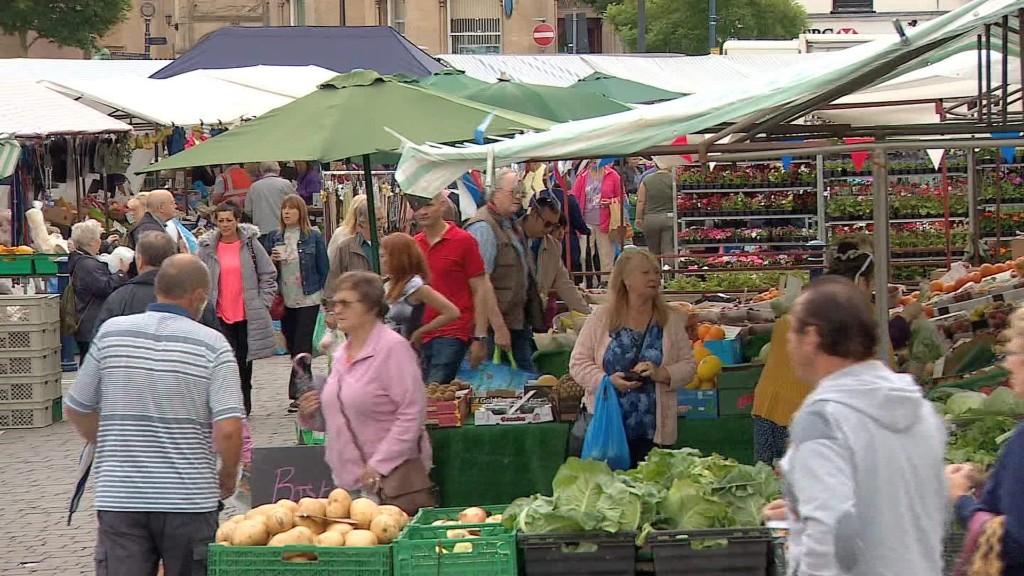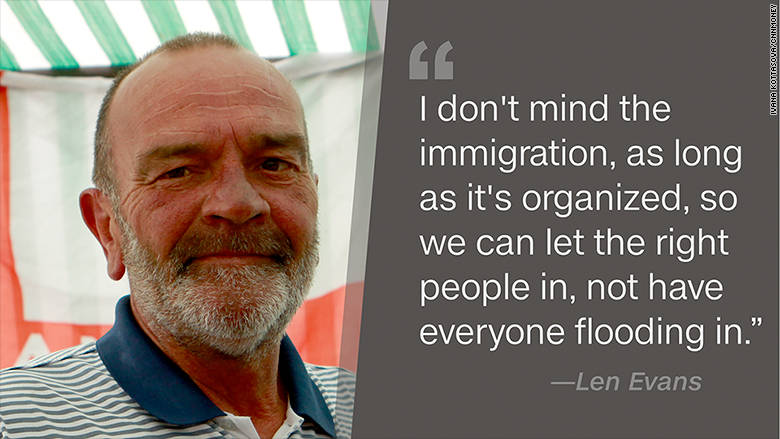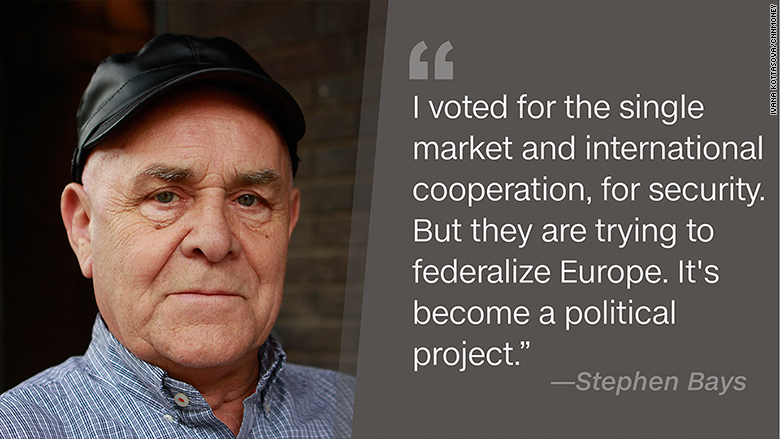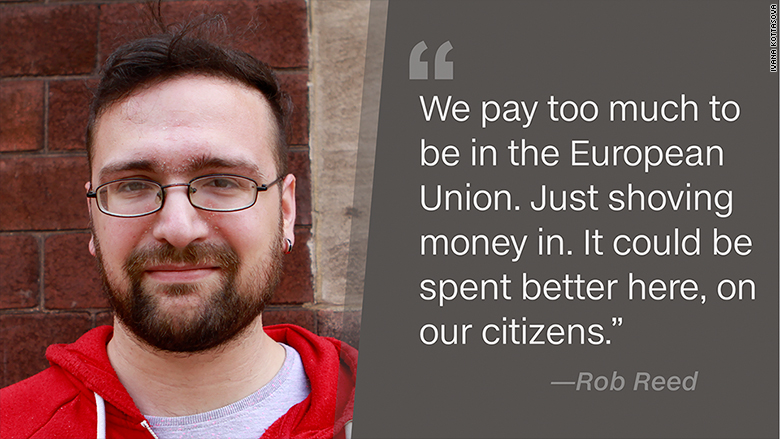
In a market town in eastern England, one issue dominates the debate about the European Union: immigration.
Boston, Lincolnshire, has changed rapidly since the U.K. opened its door to migrants from countries that joined the EU in 2004. Shops selling food from Poland and the Baltic states line the streets; store windows are full of foreign languages.
About 13% of people living in the area are migrants from the EU. Most are from eastern Europe. For many of the locals, this is why they're planning to vote for Brexit -- leaving the EU -- in Thursday's referendum.
"I remember when the U.K. was a community," said local resident Beverly Shane. "We are no longer in control."
She's ready to vote to leave despite dire warnings from the government and the Bank of England that Brexit could trigger recession and cost the country hundreds of thousands of jobs.
Here are some of the reasons why people want to leave the EU:
Migration
Prime Minister David Cameron promised in 2010 to cut annual net migration -- the difference between the number of people arriving and leaving the country -- to "tens of thousands."
But that figure stood at 333,000 in 2015, up from 44,000 in 1991. Nearly half of all migrants come from the EU.
Former London Mayor Boris Johnson and other Brexit campaigners say the number of people moving to the U.K. is putting too much of a strain on public services.
Related: What happens if Brexit wins?
They also say that migrants are driving down wages and that leaving the EU is the only way Britain can regain control over who can come to the country.

Under EU rules, citizens of any member state are allowed to live and work anywhere in the bloc, regardless of their education, salary or skills.
"Brexiteers" want to scrap the open door policy and replace it instead with an "Australian-style points based system." That's the system the U.K. already applies to migrants from outside the EU.
"I don't mind the immigration, as long as it's organized, so we can let the right people in ... not have everyone flooding in," said Len Evans, a market stall owner from Boston.
Richard Quest: EU referendum is the vote of my lifetime
Business
Business is divided. Many global companies operating in the U.K. have warned against the risk of Brexit, but hundreds of British business owners support leaving the EU.
They say their businesses are suffering because of European regulations.

"Since we've joined the EU, we've lost produce from South Africa, from Australia," Evans said.
The EU has a common trade policy, which prevents Britain from negotiating its own free trade agreements.
The Vote Leave campaign says the U.K. would benefit from more trade with countries like India and China, and it could strike deals on its own.
They also argue that a cheaper pound could help the country's exporters, because their goods would be more competitive abroad. Remain campaigners have warned that a Brexit vote could cause the pound to fall sharply.
Related: The truth about U.K. immigration
Money
The U.K. pays more to the EU than it receives in benefits. Last year, the net contribution was £9.8 billion -- about £188 million a week. Those campaigning for Britain to leave say this money would be better spent at home.
"We are just shoving money in," said Rob Reed, a voter from Stoke. "I don't know how much exactly, but I know it's gillions."

The Vote Leave campaign has promised to use the money to support farmers, scientists and regions that currently receive EU funding, so that nobody loses out. It also suggests the money could help the national health service.
Related: How much does the EU really cost Britain?
Those campaigning to stay in the EU say Brexit will end up costing Britain way more than the money it would save, because of the hit to the economy. That would mean big tax hikes and spending cuts to balance the budget.
Democracy
For many people backing Brexit, the issue comes down to national sovereignty. As a member state, the U.K. has to adhere to laws that are agreed by 28 member countries and interpreted by European judges.
"The supreme court of this country is no longer the highest court in the country, because of the European Court of Justice," said student Nicholas Taylor.
European laws are approved by the 28 elected heads of government, meeting as the European Council, and reviewed by the European Parliament. Citizens elect members of the European Parliament, many feel the real power resides with unelected officials in Brussels -- home to the European Commission.
"They are in control of our affairs, but there is no way of voting them out ... like you would with a rubbish government," said Stephen Bays, a voter from South Shields.
